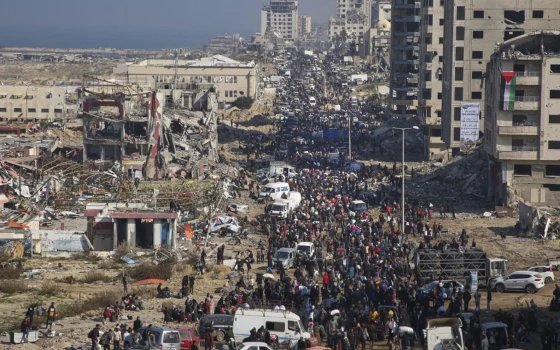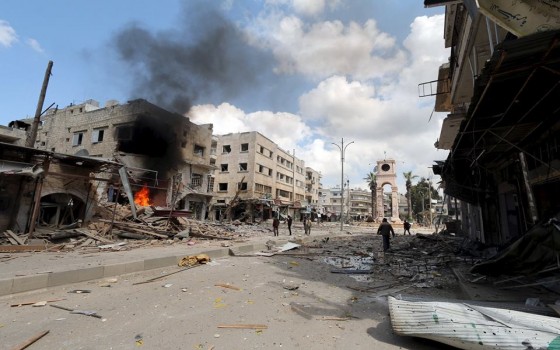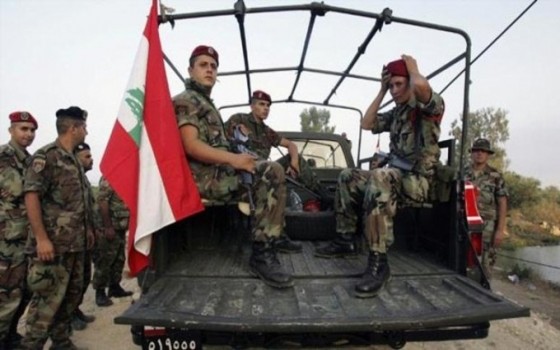
The return of displaced persons continues to northern Gaza, and a million children face shortages of basic needs, and Israel confirms that 15,000 soldiers in its ranks have been injured and redeployed in southern Lebanon

- Europe and Arabs
- Tuesday , 28 January 2025 14:9 PM GMT
Gaza - Beirut: Europe and the Arabs
Palestinian refugees continued to cross into the northern Gaza Strip for the second day in a row after the Israeli forces withdrew from the Netzarim axis, in a scene that angered the far-right circles in Benjamin Netanyahu's government. Meanwhile, the army is escalating its operations in Jenin and various areas in the West Bank after a directive from the political level.
This comes after the American website "Axios" quoted President Donald Trump as saying that he expected his Egyptian and Jordanian counterparts to accept receiving Palestinians in their countries.
For its part, the Israeli Ministry of Defense said that the Defense Rehabilitation Department has taken care of more than 15,000 wounded soldiers since the outbreak of the war.
In southern Lebanon, the Israeli army announced that it had recently redeployed to sites "to enable the effective deployment of the Lebanese army and to keep Hezbollah away."
In this context, the Israeli Army Radio quoted opposition leader Yair Lapid as saying that Israel "will not abide by the terms of the ceasefire in Lebanon until it also abides by it."
UNICEF said more than 350 aid trucks have entered the Gaza Strip as part of ongoing efforts to meet the needs of nearly one million children after 15 months of bombing.
In a statement issued on Monday, UNICEF said the trucks, loaded with water, hygiene kits, malnutrition treatments, warm clothing, tarpaulins and other critical humanitarian aid, entered through crossing points in both the north and south of the Gaza Strip and are being distributed with partners to families in need.
“Our teams are working around the clock to scale up much-needed humanitarian assistance, especially in areas that were not reached before the ceasefire due to operational challenges or constraints,” said the organization’s Executive Director, Catherine Russell.
She added that the ceasefire provided some relief, but families are returning to areas that were completely destroyed, warning that “the physical and emotional scars are deep.”
Children most affected
UNICEF explained that children are the most affected by this crisis and need urgent attention to meet their immediate needs, and ensure their safety, education and well-being.
A ceasefire alone will not end the suffering of children in Gaza, she added, and with all basic services in collapse, and the scale of destruction to homes, health and education facilities, the level of humanitarian needs is almost unimaginable.
UNICEF is targeting the delivery of 50 trucks per day in this first phase of the ceasefire, and has hundreds of pallets of aid pre-positioned at the Gaza border, with more on the way, prioritizing items identified by communities and humanitarian partners as the most urgent.
Call to end detention of children
UNICEF said that services for children and their families, including mental health, psychosocial support, water and sanitation services and basic nutrition, are being scaled up on the ground.
It is also focusing on providing vaccines and support teams for catch-up immunization activities to prevent disease outbreaks, while scaling up screening and treatment for malnutrition. Hospitals in Gaza, particularly in the north, will receive support to increase their capacity, particularly in neonatal units.
UNICEF welcomed the release of 12 children under the age of 15 from detention in Israel, as well as young people who were first arrested as children. She called for an end to the detention of children in all its forms. She renewed her call for the release of all hostages from the Gaza Strip, especially the two remaining children.
Return to the North
In another development, the United Nations Office for the Coordination of Humanitarian Affairs said in its latest update that partners on the ground were monitoring the movement of hundreds of thousands of Palestinians who have begun to return to their places of origin in northern Gaza, and that partners are providing them with hot meals, high-energy biscuits and emergency medical care as needed.
The office added that according to the latest figures from UN partners, nearly 220,000 people from southern Gaza returned to the north on Monday alone after the Israeli army opened the Rashid Road checkpoint, allowing people from southern areas of the Strip to move north.
The office said that it and its humanitarian partners continue to expand vital assistance to those in need in Gaza, adding that humanitarian partners and aid are now reaching areas that were previously inaccessible, including along Rashid Road and areas south of Gaza City.
During the first four days of the ceasefire, WFP delivered more food to Gazans than in the entire month of December 2024. UNRWA, for its part, brought in enough food for one million people during the first three days of the ceasefire alone.
Needs assessment
OCHA said it conducted a needs assessment on Sunday in the Al-Fukhari area, east of Khan Younis, where some 10,000 returnees urgently need water and shelter support.
OCHA added that its team visited returnees in the Abasan area, where some 45,000 people are living in schools and temporary sites after their homes were destroyed.
In Khan Younis and Deir al-Balah, UN partners tracking displacement in Gaza conducted assessments in eight locations where some 38,000 people are living. Most said they planned to stay – although those displaced from the north expressed a desire to move once the situation stabilizes.
OCHA’s team noted that people in these locations urgently need food support, shelter assistance, clean water and hygiene kits.
Situation in the West Bank
In the West Bank, OCHA warned that the situation in Jenin and the refugee camp continues to deteriorate as the ongoing operation by Israeli forces enters its seventh day, resulting in more casualties and destruction of roads and infrastructure. On Sunday, a two-year-old girl was reported killed by Israeli fire while at her grandparents’ home. Since the operation began in Jenin on 21 January, 16 deaths have been reported.
Meanwhile, OCHA noted reports that two Palestinians were killed in an airstrike on Monday in Tulkarm refugee camp, raising concerns about the use of force that exceeds law enforcement standards. Since then, Israeli forces have raided Tulkarm and surrounded Tulkarm Governmental Hospital.
OCHA stressed that health facilities, including hospitals, are not a target and must be protected at all times, wherever they are.












No Comments Found